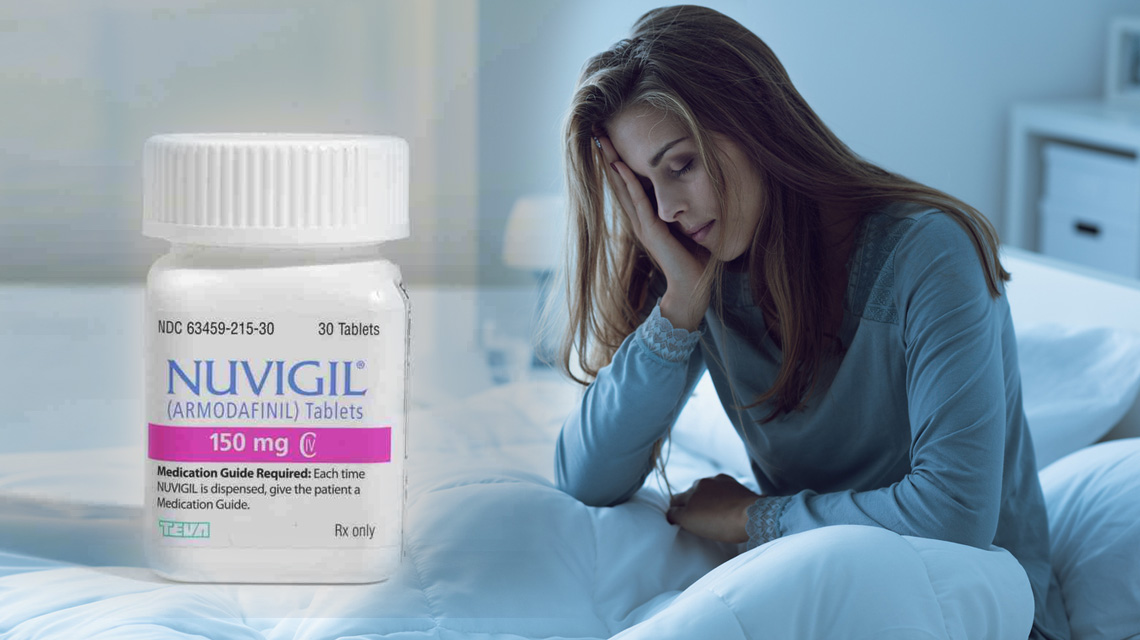How Does Nuvigil Work? Is It Addictive?
By Christine RamirezJan 01, 20211589

The use of nootropic drugs has escalated lately due to their cognitive-enhancing properties. Globally, millions of people find nootropics helpful to survive that over-time or want to perform better in academics with higher efficiency. The world has become a competitive place, and to match up with it, everyone wants to perform better to achieve what they need. Smart drugs provide that ‘kick’ so you can focus more to gain high productivity.
One of the widely used nootropic drugs is Nuvigil, which is actively composed of armodafinil. It got approval from the FDA in 2007. It is approved for treating excessive sleeping caused by narcolepsy, obstructive sleep apnea, and work shift sleep disorder, as it promotes wakefulness and eliminates sleepiness. Individuals who use the Nuvigil are known to stay alert and awake with its long-lasting effect. Its demand is increasing in different adult age groups. But are such medications addictive? Let’s find out.
How does Nuvigil work?
Nuvigil drug’s exact mechanism is unclear but is presumed to work the cognitive function of the brain. Nuvigil contains armodafinil, a single-isomer of another nootropic agent called modafinil. Nuvigil falls in the class of medicines called eugeroics. It stimulates our brain and balances the sleep-wake cycle. Pharmacologically, Nuvigil works as a dopamine reuptake inhibitor. It stops the transport of dopamine at the synaptic cleft. The increased dopamine concentration helps you stay awake and alert.
Nuvigil provides you an immense advantage if you are a workaholic and need to improve your alertness and cognitive functions. Benefits of Nuvigil include:
- Increases mental energy
- Improves concentration/focus
- Lowers stress
- Balances mood
- Improves memory
Nuvigil is the R-enantiomer of racemic modafinil, this means that both the drugs function the same, but their chemical structures slightly differ. However, both fall in the category of nootropic drugs. Both the medicines have shown similar effects during clinical studies. However, Nuvigil and Provigil are not compared directly.
Nuvigil is a good alternative as a first-line treatment because of its longer half-life and single dosage. Its standard dosage is 150 mg. Nuvigil has also studied fatigue associated with menopause. The results were positive, and up to 150mg dose per day is known to improve quality of life. Nuvigil smart drug dose could be increased to 250mg per day. However, a doctor’s consultation is essential.
Is Nuvigil addictive?
Nuvigil contains armodafinil that is classified as a class IV controlled substance. In simple terms, it means Nuvigil has a very low chance to cause addiction or dependency. If it is used safely, it has many benefits and helps to cope with sleeping disorders. Therefore, using Nuvigil responsibly eliminates the chances of addiction. Experts state that Nuvigil works similar to illicit drugs, but they restrain the fact of potential addiction to this nootropic drug.
They also say that most people who use Nuvigil drugs do not experience the euphoria or high feeling, which people get from illicit drugs, nor experience extreme stimulation like caffeine. The possibility of addiction to Nuvigil is very low. Therefore, researchers say that this nootropic drug is overall safe to use and does not cause potential side effects.
Armodafinil is also undergoing trials for different issues such as ADHD, autism, and depression. However, Nuvigil may cause withdrawal symptoms if stopped abruptly.
How to take Nuvigil safely?
Take the Nuvigil smart drug orally; you can take this drug with or without food. Your physician will examine you and prescribe you an optimum dosage. Your physician will advise you of a lower dosage at first, and then he will increase it gradually depending upon the effectiveness and side effects of Nuvigil.
Take the medication as recommended by your health expert, and do not make any alteration to the dosage without checking with your doctor. Signs that you might be misusing Nuvigil include trouble sleeping, restlessness, confusion, feeling excited, mania, hallucinations, nausea, diarrhea, severely increased or decreased heart rate, chest pain, and increased blood pressure.
Safety Concerns
Like any other medicines, Nuvigil can also cause side effects in some individuals. However, the intensity of common side effects is low such as headaches, nausea, and diarrhea. However, serious side effects can occur in rare cases, such as severe rash called Stevens-Johnson syndrome, allergic reactions, persistent sleepiness, and psychiatric symptoms.
People with cardiovascular disease may suffer from side effects such as palpitations or augmented blood pressure. There are also concerns regarding the Nivigil’s interactions with other medications and its impact on unborn babies.